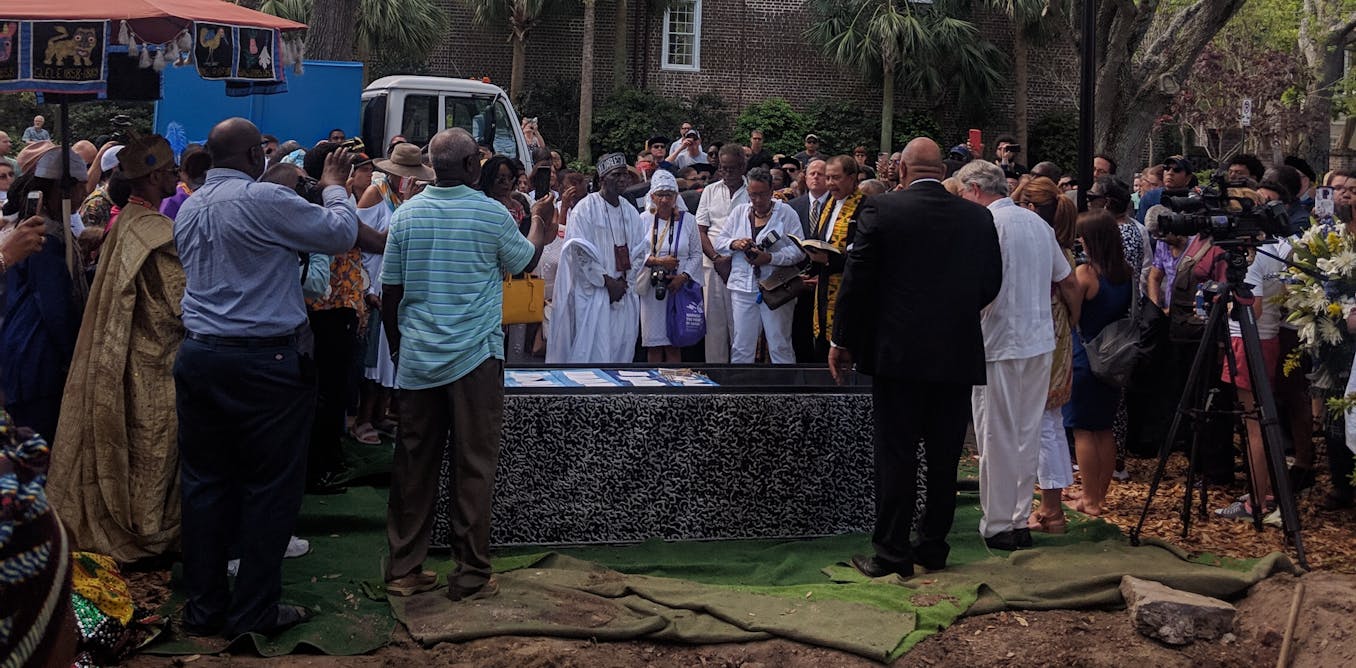
"For more than two centuries, such burial grounds, especially those in the former American slave states, have often been erased or obscured - paved over by parking lots, built upon by highways or private development, or simply left unknown and untended. In recent years, descendant communities in places such as Bethesda, Maryland, Richmond, Virginia, St. Petersburg, Florida, and Sugarland, Texas, have called for greater recognition and respect for these long-neglected sites."
"Since the British colonial period, racist laws and customs across America prevented enslaved and free people of African descent from using white burial grounds to bury their dead. On plantations, enslavers controlled where and how the enslaved were buried and whether burials could be marked or visited. In cities from Charleston to New York, segregated burial grounds, many now forgotten, were established by local authorities for indigent Black and white people."
In 2013 construction work in downtown Charleston uncovered the remains of 36 people of African descent who had lain in an unmarked 18th-century burial ground for about 200 years. Many African American burial grounds were erased or obscured across former slave states, often paved over or developed. Descendant communities in several U.S. cities now seek recognition and respectful treatment of these sites. The Anson Street African Burial Ground project is a community-led effort to honor, study, and rebury the ancestors. Engagement with these places can provide genealogical information and support healing, reconciliation, and cross-cultural understanding.
Read at The Conversation
Unable to calculate read time
Collection
[
|
...
]